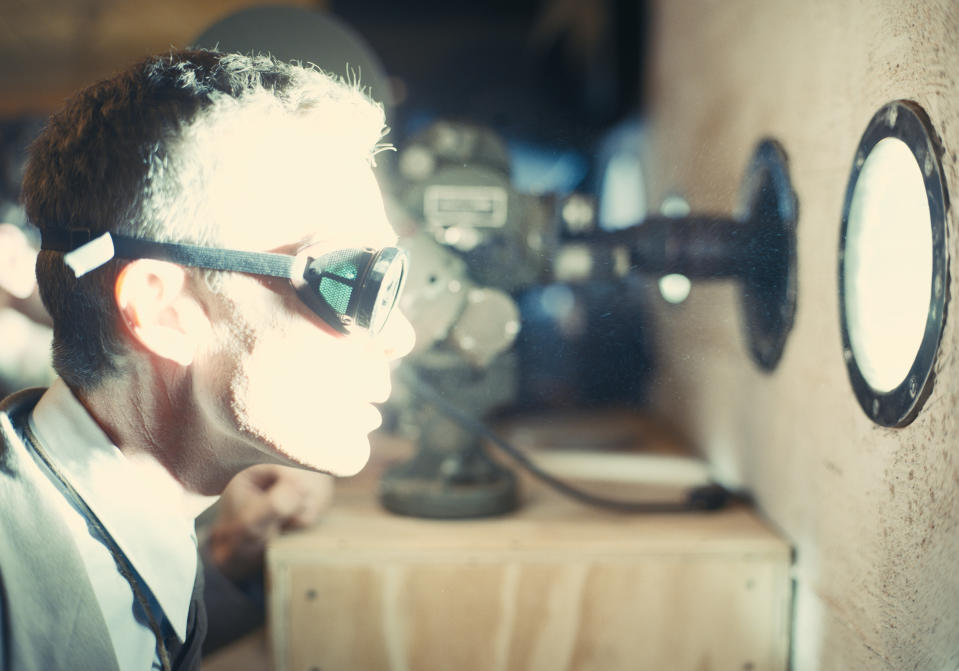Michael Phillips: The ‘Barbie’ Oscar snubs aren’t about genre bias — unless you’re misspelling the word ‘gender’
- Oops!Something went wrong.Please try again later.
- Oops!Something went wrong.Please try again later.
- Oops!Something went wrong.Please try again later.
Last year was an unusually strong year for the movies, and the Academy Award nominations announced Tuesday reflect a lot of that strong, vital work. It happens now and then, and it happened in this last film year: Two of the three biggest popular successes were actually really good, and deserving of the multiple nominations they received. I speak of “Oppenheimer” (13 nods) and “Barbie” (with eight). “Poor Things,” which is terrific, by the way, came in with 11; “Killers of the Flower Moon,” 10. Look for an “Oppenheimer” top prize win at the ceremony March 10.
Unfortunately, the Oscar nomination slate also comes with a faint, fishy odor.
No Greta Gerwig for best director? No Margot Robbie for best actress in a leading role? For “Barbie”? Really?
Yes, this year’s best director nomination lineup is extraordinarily competitive. And yes, there’s a female director on that list of five: Justine Triet, from France, who has been widely and rightly lauded since last May’s triumph at the Cannes Film Festival for “Anatomy of a Fall,” a clever, stealthy mixture of murder mystery, courtroom drama and the secrets inside any marriage.
But I wonder. I wonder if the Academy member directors who chose the five directorial nominees made a dubious, old-school bargain with themselves and their decisions.
I wonder if they, collectively, by chance or conscious choice, decided one woman was all that heaven allowed this year, since they had Martin Scorsese (”Killers of the Flower Moon”), Christopher Nolan (he’ll win for “Oppenheimer”), Yorgos Lanthimos (”Poor Things”) and Jonathan Glazer (for the nerviest film nominated in the director and best picture categories, “The Zone of Interest”) ready for the list of five already.
To be sure, Gerwig won’t be invisible come Oscar night. She and her “Barbie” co-screenwriter and partner, Noah Baumbach, made the nomination cut for adapted screenplay. Which was the wrong category. “Barbie” may have riffed on a line of Mattel products, but when you’re creating a story, and world, out of whole cloth, plastic and vibrant imagination, it really is more of an original screenplay.
As for Robbie: Yes, she’s one of the nominated producers behind “Barbie,” which is up for best picture. But if I ran the zoo, I’d surely have made room for the unerring and unexpectedly nuanced portrayal Robbie created, swapping out, I suppose, Annette Bening, who did fine work in a not-fine film, “Nyad.”
The ABC pundits Tuesday morning, along with other awards-season commentators recently, talked about “Barbie” being too big not to cause some industry resentment or at least a little awards pushback, especially with so much other good work to recognize. A recurring phrase in the pre- and post-nominations ABC coverage was “genre bias,” meaning “Barbie” is a comedy and therefore a lesser thing. True, it’s a comedy. A thoughtful, surprisingly affecting one, taking Hollywood’s and the wider world’s commercialized, routinized gender biases head on, in scene after scene.
And now, the Oscars have made sure “Barbie” is still living with, and within, that bias.
Despite all that? The nominations this year, coming from 93 different countries of Academy voting member origin, spread out a lovely array of quality. Lily Gladstone made history as the first Native American nominated for best actress (”Flower Moon”). Netflix, that eternal mixed blessing for the future life span of theatrical exhibition, had a better showing than it deserved, with nominations for “Nyad” and, arguably, the over-nominated “Maestro” (though it’s worth seeing). On the other hand: Colman Domingo’s first-time nomination in the best actor category, for “Rustin”? On. The. Money.
Domingo’s fellow first-time acting nominees represent a murderer’s row of skill and versatility. I mean! Jeffrey Wright (best actor, “American Fiction”). Sandra Hüller (best actress, “Anatomy of a Fall”). Da’Vine Joy Randolph (supporting actress, “The Holdovers”). Randolph will surely win; she’s won nearly everything she could possibly win for her performance so far.
Other first-time Oscar nominees include Emily Blunt (supporting actress, “Oppenheimer”). Cillian Murphy (best actor, “Oppenheimer”). Sterling K. Brown (supporting actor, “American Fiction”). America Ferrara (supporting actress, “Barbie”). And Danielle Brooks (supporting actress, “The Color Purple”).
Would I lose one of the supporting actress nominees to make room for Rachel McAdams in “Are You There God? It’s Me, Margaret?” Yes. But every year is like that, in almost every category. The Oscars exist to frustrate and aggravate and confirm our suspicions. And to affirm our excellent taste when we agree with the results.
There are, however, a few nagging traditions best left in the rearview mirror. Genre bias is one. The old axiom “dying is easy; comedy is hard” holds true for Oscar recognition.
Gender bias is another one. “Barbie” marks the third film in a row directed and written, or co-written, by Gerwig nominated for best picture. “Lady Bird” secured her a director nomination. “Little Women” did not. And “Barbie” did not.
She’s a protean talent. And she deserved to be recognized this year. The exclusion seems more than a little … off. It smells. It’s one of Hollywood’s most persistent and lingering odors. As Will Ferrell said of Paul Rudd’s cologne in “Anchorman”: It stings the nostrils.
———
The 96th Academy Awards will be presented March 10 at the Dolby Theatre in Los Angeles, broadcast at 7 p.m. ET on ABC.
———


